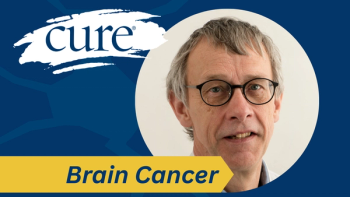
The Role of Music in My Life with Cancer
I was first diagnosed with cancer when I was six years old, and I can still remember passing the time during treatment by listening to the “weekly top 40” that my brother and I recorded on a cassette tape.
This is sponsored content.
I was first diagnosed with cancer when I was six years old, and I can still remember passing the time during treatment by listening to the “weekly top 40” that my brother and I recorded on a cassette tape. The combination of lyrics and melody had a way of taking my mind somewhere else. And let’s be honest, I would have preferred to have been anywhere else. I was more than 10 years away from having a driver’s license, but music became my vehicle to escape the realities of cancer, even if only temporarily.
The importance of music only grew as I got older in helping me find joy while also having cancer. I started to play guitar when I was 14. At this point I had been diagnosed with cancer twice, which had been very challenging for me. I found that playing not only took my mind off of my cancer, it made people feel good, it made them happy — and that made me happy.
Now, as an adult, I’ve had the opportunity to write and record songs about my experience with cancer. I toured and performed in front of other people with cancer who also used music as an outlet, which was a “full circle” moment in my life. Through my music I tell my story of living with cancer, and often hear from audience members that by sharing my story, I sometimes help them with theirs.
The number of cancer survivors in the U.S. is only growing — which is a tremendous thing. But, as survivors, we can – and should – help each other navigate the challenges we face by sharing our experiences, fears, coping mechanisms and outlets.
So, what’s your outlet?
Ryan is a Bristol-Myers Squibb Patient Ambassador who has been diagnosed with cancer four times. He is currently participating in




